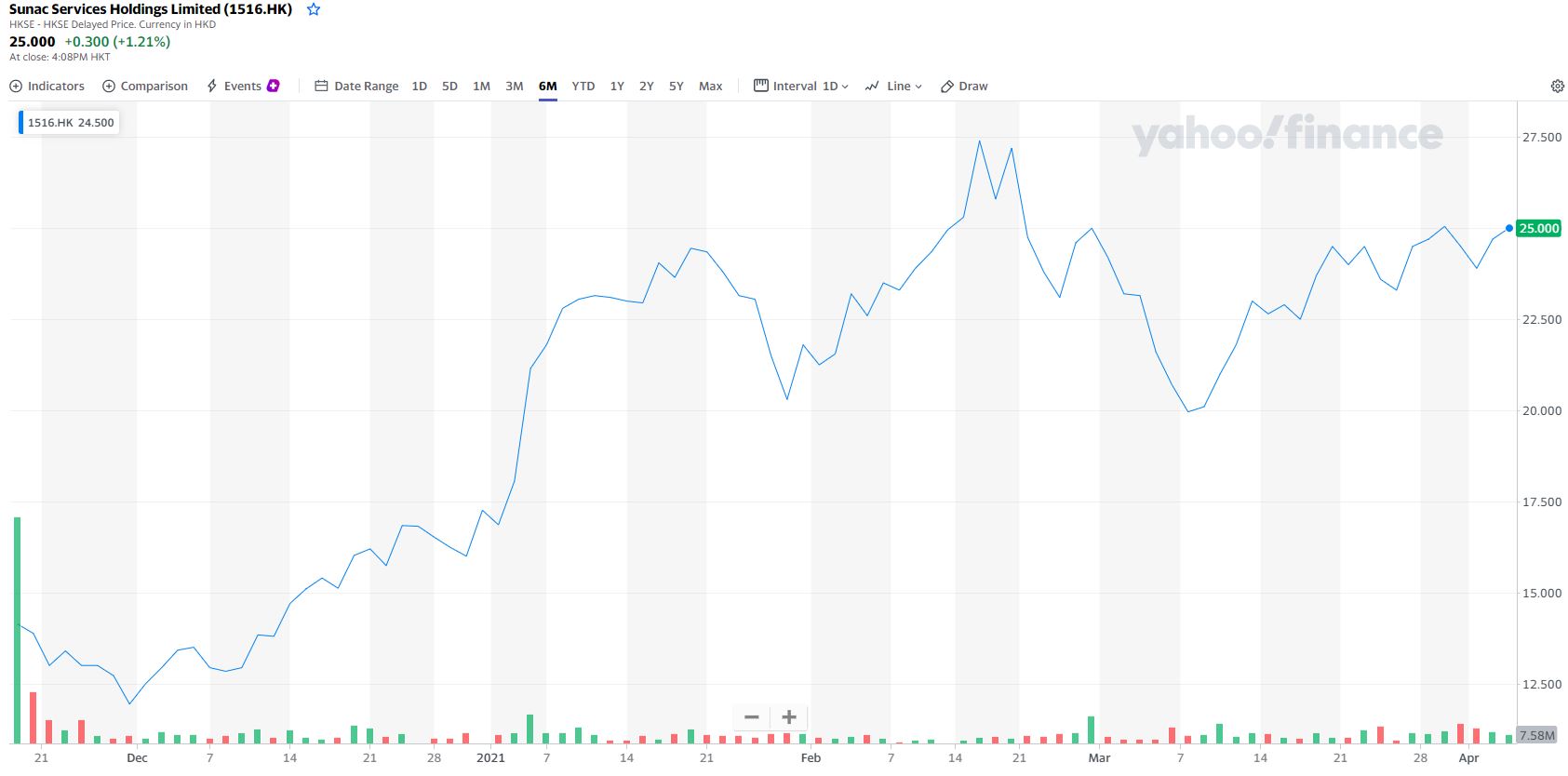What’s three times the price-earnings (PE) multiple of Apple or Google and 1.5 times that of Amazon? If you say its Chinese property management company Sunac Services, it’s likely to attract a lot of raised eyebrows if not outright disbelief. Yet, the spin-off of Sunac China Holdings, one of the largest property companies in China with a market capitalization of nearly US$20 billion, was trading at a PE multiple of 110 times in February 2021 when the parent company could only muster 3 times.
While the idea of property management conjures up the image of the greying old man wearing a uniform in the lobby of your condominium, it has been transformed in China, spiced up by the application of technology that allows residents to use a dedicated app to order food online, picked up by an intelligent parcel machine, and can even allow for group orders with friendly neighbours to secure nice discounts.
Sunac Services is not the only case. Several Chinese real estate developers have spun off their property management units in separate listings. In 2020, a record 17 property management companies launched initial public offerings (IPOs) on the Hong Kong stock market, raising about US$8.33 billion.
The IPO activity last year compares to the US$1.6 billion raised in 2019 by such companies and the US$1.4 billion raised in 2018. And the momentum is expected to continue into 2021. Figures from Wind, a China-based data provider, indicate that of the 11 real estate companies that have filed listing applications in Hong Kong, eight are property management companies.
There are two main reasons why Chinese property management companies have gone public. Firstly, property development has reached maturity in China after 30 years of rapid growth, pushing developers to search for new revenue streams. Customer demand is also shifting from buying properties to enhancing the housing experience and living quality.
Secondly, with the Chinese government’s focus on deleveraging in the property sector via its so-called “three-red-lines” policy initiated in early 2021, Chinese property developers are facing refinancing pressures and the spin-off IPOs help trim their net-debt-to-equity ratios and raise additional cash.
For investors, there are a number of good reasons – despite the steep PE ratio – to buy. In contrast to the developer parent companies, property management subsidiaries are asset-light businesses that can generate stable cash flows. This kind of income is less sensitive to macroeconomic trends or changes in monetary policy.
Meanwhile, property managers have remained proactive amid the pandemic as residents are staying at home for longer, fuelling the demand to provide more diversified services. This is in line with the development strategy for property management companies that are keen to provide value-added services, such as property brokerage, housekeeping and lifestyle services, to improve their profit margins.
Hence, it is natural for property managers to work with technology companies to create a win-win situation. Given their labour-intensive business model, property management companies could leverage technologies, such as smart video surveillance and facial recognition systems, to lower their costs and improve profitability. The addition of new technologies would also help accelerate their digital transformation and enhance their management efficiency.
In similar fashion, technology companies also have ambitions to expand their business by connecting their online and offline channels. Working with traditional property management companies gives them access to a property manager’s large number of offline customers. This provides a scalable community for the applications produced by technology companies and is one of the reasons why Chinese technology companies like Tencent Holdings and JD.com have become cornerstone investors in recent and potential upcoming property managment company IPOs.
So, if you are ever wondering why the likes of Sunac Services are valued higher than Apple, Google or Amazon, try out Chinese property management companies' new technology next time you visit friends in China – after the pandemic, of course.










